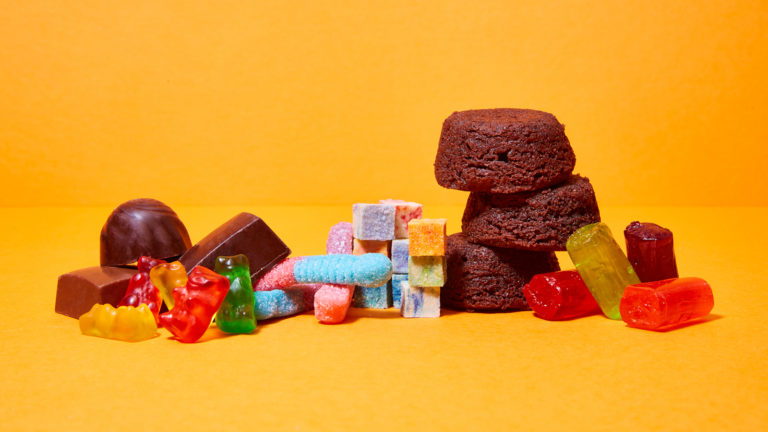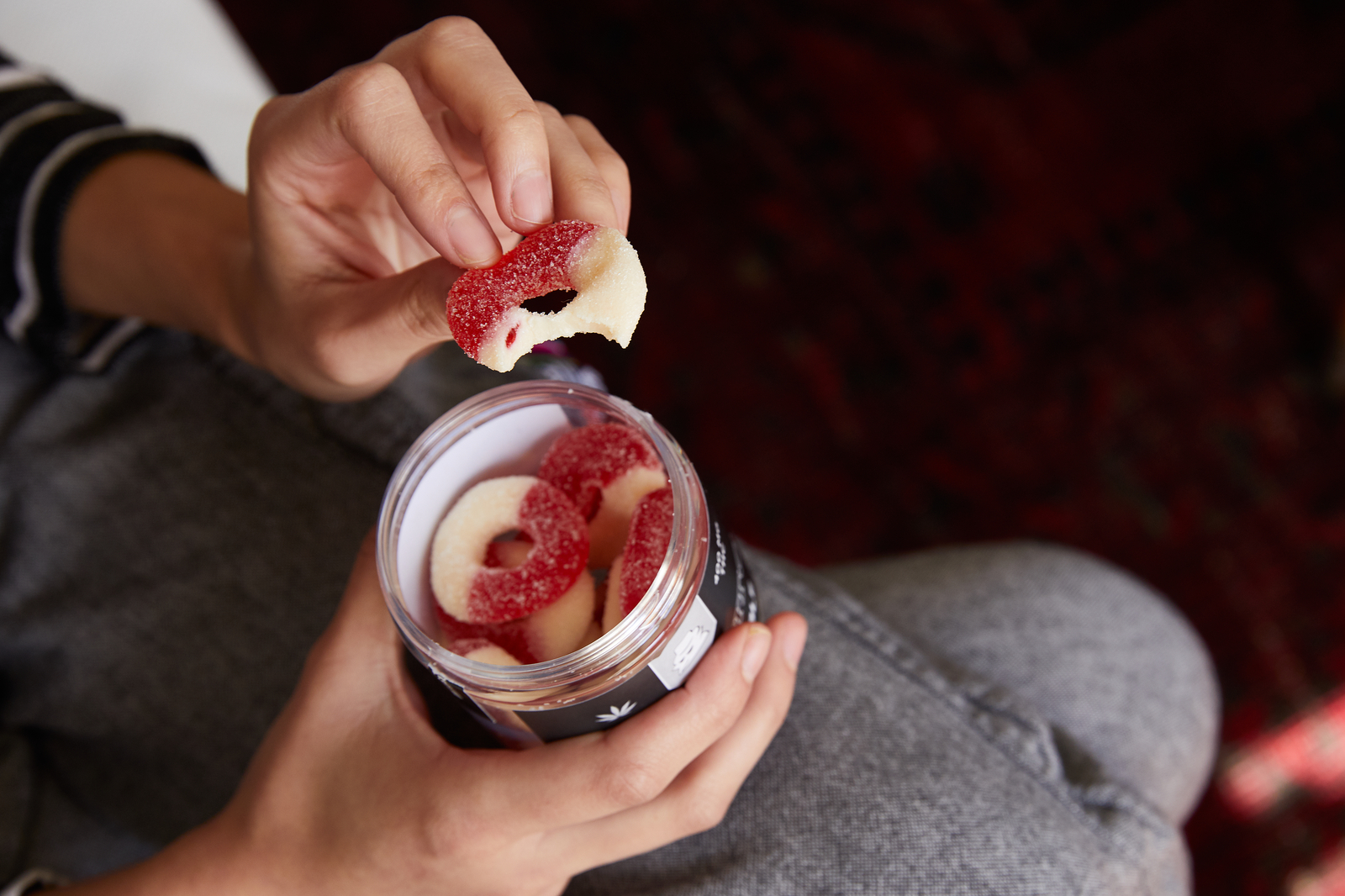It probably comes as no shock that, yes, edibles do expire. They are food products and as such, they will eventually go bad — or at the very least lose optimal freshness over time.
So what do you do when you happen upon a long-forgotten bag of infused gummies or an old cookie buried at the back of the cupboard? Here are a few things to know and consider when it comes to cannabis-infused edibles and their perishability.
Consider the ingredients
Let's start off with some common sense. “It really just comes down to the starting material,” shared Carson Shipley of Seattle's (Lux) Pot Shop. Some foods are more perishable and therefore have a shorter shelf life than others. A freshly baked cake without added preservatives won't last as long as a more shelf-stable packaged good like a lollipop.
 Photo by: Gina Coleman/Weedmaps
Photo by: Gina Coleman/WeedmapsImage lightbox

“The shelf life of an edible depends on the type of edible, how it was made, and the preservatives that are added to it,” explained Jesse Poe, Director of Edibles Operations for Chalice Farms in Oregon.
Some cookies and brownies were developed and formulated to be packaged and shelf-stable for a long time (think the nearly indestructible Twinkie), and these edibles will naturally have a longer shelf life than an infused cookie or brownie you make at home, for example. And while some products might not go bad per se (think a chocolate bar or gummy) they can get stale over time, and just might not be as enjoyable.
This is where that common sense, along with our evolutionary wisdom as members of the animal kingdom, comes in handy. If you're questioning whether or not an edible has gone bad, use your senses as a guide. If the color, texture, smell, or flavor seems off, toss it.
Consider best-before dates
Of course, virtually all packaged edibles you buy from legal dispensaries come with an invaluable piece of information that helps take out the guesswork: the best-before or expiration date. “It's best to consult the manufacturer of the edible to determine the shelf life of that edible because each edible is different,” added Poe.
With products that contain highly perishable ingredients like fresh butter or dairy, you'll probably want to stick to the expiration dates given by the manufacturer. But what about shelf-stable products like lollipops, gummies, or chocolate? If the best-before date has passed does that mean you should just dispose of them? Not necessarily.
Sugar acts as a great preservative, but over time texture, color, and flavor might become less than appealing. “The best-by date doesn't have to do with the potency of the edible but the shelf life of the ingredients used. Something like a gummy or a chocolate will get stale over time similar to products purchased at the grocery store,” explained Shipley.
This brings up a whole new line of inquiry: potency and cannabinoids. Do cannabinoids like THC and CBD go bad?
Cannabinoids don't go bad, but they do degrade
The good news is that cannabinoids like THC and CBD, the active molecules in edibles that produce effects in our bodies, don't go bad — but they do degrade. This means that over time their molecular structure changes, and they may have less of or a different effect on you.
THC, for example, degrades into another cannabinoid you might be familiar with: CBN. Cannabinol (CBN) is often referred to as the sleepy cannabinoid, and while more research is needed to understand exactly how CBN might affect our sleep, it's garnered a reputation for having sedative properties and given many folks a new view of their old weed.
Over time, and/or with excessive heat, light, and oxygen, THC will break down into CBN. CBN is considerably less intoxicating than THC, meaning the euphoria you associate with THC might turn into sleepiness if your edible has been sitting around for a while.
We haven't yet studied exactly how bodily effects change when other cannabinoids like CBD degrade, though it's a safe bet to assume that old edibles will be less potent. “All cannabinoids degrade over time. The rate of that degradation depends on how the edibles are stored and preserved. It is not uncommon for an edible to decrease in potency by 10 to 20% per year, if not stored properly,” added Poe.
Air, heat, light, and time are all working against the longevity of cannabinoids, which is why storage becomes especially important.
Storage tips
“It is always a good practice to keep edibles in a cool, dry, dark place. Environmental factors such as sunlight and heat can degrade the edible and the potency quickly,” advised Poe. An airtight container in a pantry or cupboard is a good way to store most store-bought and shelf-stable products like candy and chocolate. If a product is perishable enough to need refrigeration, it should say so on the label.
 Photo by: Gina Coleman/Weedmaps
Photo by: Gina Coleman/WeedmapsImage lightbox

What about storing gummies and chocolate in the fridge or freezer? Will this extend their shelf life? That can help to extend the life of your edibles but be aware that unless they're in their own airtight containers, they can absorb flavors and moisture from the environment. For infused edibles you might make at home, like condiments, oils, or butters, you can expect the same shelf-life as their non-infused varieties. Be sure to protect them from air, light, and heat, too.
One final tip on edible storage: safety. With cannabis legalization spreading and hemp-derived CBD products now widely available, the number of incidents of kiddos and pets accidentally getting into edibles is also on the rise. Always lock your stash away in a safety box to make sure it doesn't get into the wrong hands.
The bottom line
Cannabis-infused edibles can perish just like any other food. If you're buying a pre-made edible, check out the product's packaging for a best-before date. If you're making edibles at home, follow the same rules and exercise the same common sense you would with any foods you make.
Know that cannabinoids like THC and CBD change and degrade over time, which can also change your experience with them. Always safely and securely store edibles in airtight containers away from moisture, heat, and light.

